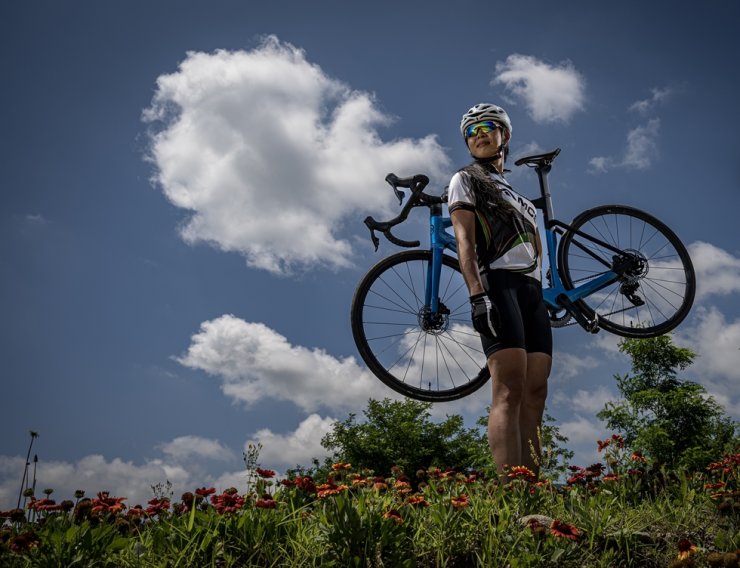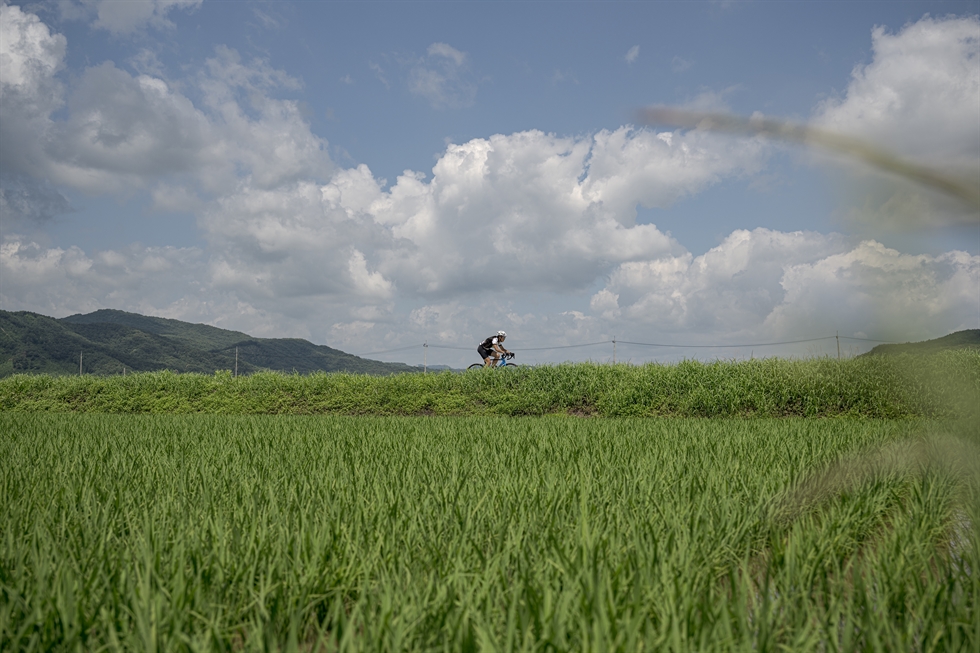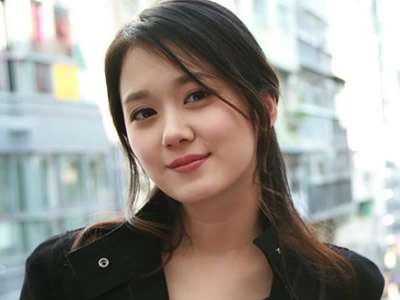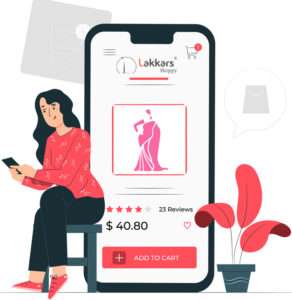
Transgender cyclists make sports more gender inclusive, fairer
CHEORWON, Gangwon Province ― In June, Korea saw the historic appearance of the country’s very first transgender athlete Na Hwa-rin, a 37-year-old cyclist who competed and won medals at this year’s Gangwon Sports Festival in eastern Gangwon Province.
Standing at 180 centimeters and weighing 72 kilograms, Na has a skeletal muscle mass of 32.7 kilograms, which is a dozen kilograms more than that of a typical female athlete. After her win, Na’s physicality sparked debates on gender inclusivity and fairness in sports.
After undergoing gender-affirming surgery in Seoul last year and having her birth certificate reissued in April, Na officially became recognized as a woman in Korea. The seventh digit of her resident registration number was changed to “2,” marking her official gender designation as female here.
Na was able to compete in the provincial competition because neither the Gangwon State Sports Council nor the Korean Sports and Olympic Committee have specific gender regulations for athlete qualification.
Na’s victory ignited controversy with the reaction to her triumph proving divisive. Although some LGBTQ advocacy groups welcomed her courage and showed solidarity, others questioned on the sports council’s website the fairness of her participation. Fueling the controversy further, Gangwon Provincial Governor Kim Jin-tae voiced his intention to disqualify Na from the National Sports Festival and expressed his disapproval of regional Pride festivals as well.
In a recent interview with The Korea Times in her hometown, June 23, Na unveiled that she had anticipated all the controversy and transphobic remarks directed at her. In fact, it was all part of a plan she had been preparing for two years. Na’s biggest concern, however, was the possibility of her revelation not causing enough of a stir to initiate discourse and change in Korea’s sports scene.
Born, raised and based in Cheorwon, a city located in the mountains 70 kilometers northeast of Seoul and bordering North Korea, Na is a farmer who has run her own asparagus farm for the past decade.
“I was around 7 when I first thought I should have been born a woman,” she said, adding that when she saw Ha Ri-su, Korea’s first transgender celebrity on television as a middle school student, it gave her a clearer vision of who she is and how she wanted to live.
During her teenage years, as she began to embrace her gender identity, she chose the nickname Hwa-rin, which translates to “flower cherisher” in English.
It was not easy to come out to her religious family, many of whom are deeply involved in the Christian faith. She gradually established financial independence via her agricultural business, which enabled her to undergo the gender-affirming procedure, while revealing her identity to family and friends one by one over the years.

Although she was not naturally inclined to sports, Na rode a bicycle during her daily 15-kilometer trip to high school. She found herself falling in love with the sport as she pedaled every day to make it in time for classes and started engaging in cycling more seriously in a regional club.
“The sport gave me a sense of thrill and accomplishment and the catharsis of overcoming my limitations,” she said.
Prior to her transition, Na had already made her mark as a competitive cyclist, earning several medals in men’s races at provincial sports festivals, even while undergoing hormone therapy. Although she found the success rewarding, her true ambition extended beyond simply winning.
“I have no unresolved feelings over winning because that’s no longer what I want. My goal was to stir controversy and get my story heard by competing,” she said.
When she crossed the finish line in the women’s race, she was “more relieved than triumphant,” because she felt she finally made her point about male physical superiority and gender inclusion in sports. At the same time, Na felt sorry for the female cyclists who competed against her and offered them energy drinks as a kind of apology during the race.
“I am not honored. I am not proud of myself at all. I believe other transgender athletes would feel the same way. They may not want to admit it, but they’re being selfish. There is no honor as an athlete in that,” she said, referring to international transgender athletes who have sparked heated debate about the fairness of their competing against biological women after transitioning.
Na chose to forgo her qualification for the National Sports Festival, prioritizing fairness above everything else.
“I don’t want to make an issue to the point where I harm other people,” she said, explaining that the provincial race was appropriate for her to compete in because it wasn’t a professional competition, where she could damage female athletes’ careers by winning.
Na advocates for the creation of a “third gender” category in sports competitions, alongside male and female categories, to make sports more inclusive and fair.
“It could be like how we have many weight divisions in some sports … Under the current binary system, women athletes will be discouraged and their hard work might not be recognized due to the participation of transgender athletes. At the same time, trans woman athletes, no matter how hard they worked, will never be truly honored for their wins. Honor is the goal that all athletes aspire to attain, but this is a situation where nobody will be honored. I think that shouldn’t happen,” Na said, emphasizing the need for a system where everyone can feel a sense of achievement.
Na’s public emergence helps her play a significant role in increasing the visibility of transgender athletes in Korean sports as well as society in general. Additionally, her visibility and advocacy have the potential to inspire other trans people to pursue their dreams in sports and other areas, knowing they are not alone.
“Some people might ask, ‘Why should we do that for only one person?’ because I am the only transgender athlete in Korea so far. But if we lower the bar, more will join. The room will quickly fill up if we allow more people to compete in sports and let them live their dreams,” she said.
According to a study published in the American Journal of Public Health in 2017, around 390 out of 100,000 people are transgender. Based on the research, about 201,076 out of 51.6 million Koreans are transgender, although the government has never made available any official statistics on the matter. Wrapping up the interview, Na highlighted the essence of sports. “Respect and harmony. Those are the core values of Olympism and sports.”

Ms Jung So-min is an Author from south Korea for Lakkars Magazine she is the Head of East Asia.
